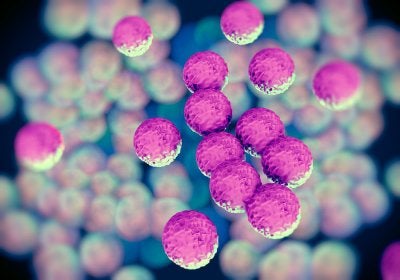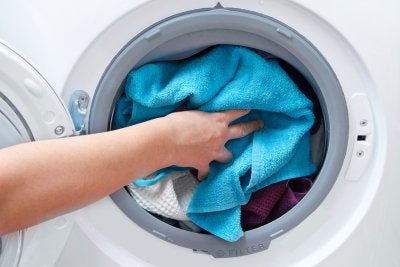-
What Bacteria Could Linger in Your Home After a Sewage Backup?
When your sewer line becomes clogged or broken, you may find that your living spaces are flooded with sewage water. Untreated sewage water poses a serious health risk, so it is highly important to contact a company offering bacteria testing in San Francisco to determine whether your home has been contaminated. When you schedule your bacteria testing, you may also want to schedule a mold test for your flooded indoor spaces. With the services of remediation professionals, you will be able to restore your home to safe condition in no time flat. Let’s take a look at some of the bacteria that may show up on a bacteria test after a sewage backup.
Parasitic Bacteria
Parasitic bacteria are among the most common types of bacteria that you may find in raw sewage . Parasites occur naturally in human fecal matter, and can continue to live once they enter a
wastewater supply. Fecal coliforms are some of the parasitic microorganisms that may show up when your home is bacteria tested after a sewage backup.
Pathogenic Bacteria
The term pathogenic bacteria is used to describe any type of bacteria that causes illnesses in human beings. There are many different pathogenic bacterium that are found in sewage water. Some of the most recognizable pathogens in sewage include Salmonella, E. coli, and Streptococcus. If you or a loved one comes into contact with one of these pathogens, serious illness could occur. By scheduling bacteria testing, you can ensure that you and your loved ones are safe from pathogens.Saprophytic Bacteria
Saprophytic bacteria feed on decomposing organic materials. For this reason, saprophytic bacteria are an important part of the composition of wastewater. These bacterium help to break down solid waste so that it can move more easily through your plumbing system. If one of more of these types of bacteria is detected in your home, your technician will be able to help you completely eliminate the contamination. -
Examining the Link Between Mold and Asthma
Asthma is a serious health problem that affects millions of Americans. Since mold is a proven asthma trigger, it is highly important for asthma sufferers to live and work in mold-free environments. When mold is present in an indoor space, its microscopic spores will contaminate the air. A person with asthma may develop mold symptoms when he or she enters a contaminated building. If you are concerned about mold in your home, you should consider scheduling a mold inspection near San Francisco . A company offering mold testing can help ensure that your home or business is safe for those with asthma. To take a closer look at the benefits of scheduling a mold inspection today, be sure to check out this video from Paul Cochrane.
-
How to Protect Your Home After a Sewage Backup
A sewage backup is a serious health threat to yourself and the other members of your household. If you experience a backup in your sewer line, it is important to take the steps needed to prevent exposure to raw sewage. In the aftermath of a sewage emergency, you should also consider setting up an appointment for bacteria testing in San Francisco . A company offering black mold testing and bacteria testing can help you determine whether your house is safe for occupancy. To help you deal with your sewage problem, here is a look at some tips for protecting your home after a sewage backup.
Avoid Sewage Exposure
When you are faced with a backed up sewage line, it is highly important to avoid sewage exposure . Directly after the sewage flooding event, you may want to evacuate your home until help can arrive. Since sewage carries bacteria and diseases, contact with raw sewage can cause serious health problems for yourself and your loved ones. Children and persons who have compromised immune systems are particularly susceptible to sewage-borne illnesses.
Wash Contaminated Items
When you are clearing out your home after a sewage backup, it is of the utmost importance to thoroughly wash any contaminated items. Clothing, rugs, and other fabric items should be washed in very hot water for at least 10 minutes. The hot water will kill any bacteria that is lingering on the fabric. Other items, such as carpets and furniture, may need to be discarded altogether.Schedule Bacteria Testing and Abatement
One of the most effective ways to protect your home after a sewage backup is to schedule bacteria testing and abatement services from a company in your area. During a bacteria test, a technician will determine whether your home is safe for you to resume occupancy. In addition, a team of abatement professionals will be able to clear away any sewage and damage that remains in your home.
RECENT POSTS
categories
- Uncategorized
- Lead
- Mold
- San Francisco Mold & Asbestos Removal
- Indoor Air Pollution
- Mold Remediation
- Asbestos
- Safe Air Fast
- Mold Inspection
- Remediation
- Bacteria Testing
- Asbestos Testing
- Abatement
- Lead Testing
- Sewer Line
- Lead Survey
- Mold Testing
- Air Quality Inspection
- Home renovations
- Allergies
- Renovation Contractor
- Infographic
- lead paint
- Air Quality
- Air Quality Test
- Mold removal
